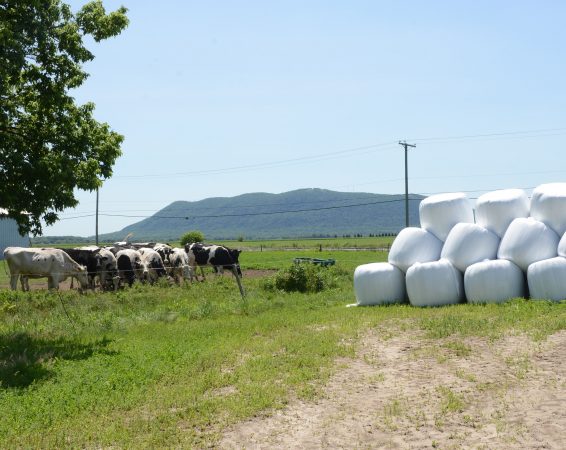
News
Feds taking action to support farmers facing extreme weather
July 23, 2021
By
Canadian Manufacturing


Farmers with livestock commonly preserve hay and silage in plastic wrap. Though a beneficial farm tool, the plastic requires end-of-life management. This Cleanfarms project is examining how plastic wrap and other used materials can be recovered for recycling.
– Cleanfarms photo (CleanFARMS Inc.)
WINNIPEG, Man. — The Government of Canada announced concrete measures it is taking to deliver the necessary support and resources for producers in areas affected by extreme weather.
“Our Government is working closely with our provincial partners to respond on a rapid basis to the evolving drought situation in Western Canada,” said Marie-Claude Bibeau, Minister of Agriculture and Agri-Food, in a prepared statement. “I am here to listen and help those farm families hard hit by this extreme weather. Our Government is taking action to help them through the challenges we face today and ensure they are supported for a sustainable future.”
Bibeau announced the early designation of the Livestock Tax Deferral provision for prescribed drought regions of British Columbia, Alberta, Saskatchewan, Manitoba and Ontario. This will allow beef producers who are forced to sell a significant amount of their breeding herd due to drought conditions to offset the resulting revenues with the costs to replace the herd. The Government of Canada will work closely with provincial governments and stakeholders to continue adding other regions throughout the year as additional information is collected.
In addition, Bibeau announced federal support to all Prairie provinces for immediate bilateral adjustments to the cost-shared AgriInsurance program to make drought-damaged crops available for feed. These measures will increase the amount of crops available for livestock producers in this time of need. Minister Bibeau also jointly announced Manitoba’s proposal to expedite any payments under the Hay Disaster Benefit.
AgriRecovery assessments are underway with Manitoba and the other provinces impacted by the drought, including Ontario, Saskatchewan, Alberta and British Columbia. The Government of Canada will collaborate with provincial governments to gather all the necessary information as fast as possible to evaluate the extraordinary costs faced by producers and provide joint support as required. This could include direct assistance to producers for the added cost of livestock feed, transportation and water infrastructure.
Provinces affected by drought can invoke the late participation provision of AgriStability to allow producers who have not yet enrolled to access program supports. Producers can also apply for interim payments under AgriStability, which can help them cope with immediate financial challenges.
Bibeau repeated the Government of Canada’s offer to raise the AgriStability compensation rate from 70% to 80% and urged Prairie governments to match it. This would provide farmers across the country an additional $75 million per year, benefitting distressed farmers who need help now more than ever.
Minister Bibeau also echoed a recent Farm Credit Canada (FCC) announcement of a customer support program for farmers and ranchers across western Canada facing financial challenges due to adverse growing conditions. FCC will work with customers to come up with individual solutions for their operations and will consider additional short term credit options, deferral of principal payments and/or other loan payment schedule amendments to reduce financial pressures on those impacted by unfavourable weather conditions.
Extreme weather conditions, exacerbated by climate change, are challenging farmers across Canada. Now is the time for governments and all Canadians to rally around those who work tirelessly to put food on our tables each and every day. The Government of Canada stands with farmers during this difficult time, and is listening to their needs and taking action to respond.
During a crisis such as this, farmers facing the stress and uncertainty of providing for their families may suffer serious mental health impacts. Those needing help are encouraged to reach out for support, and can contact The Do More Ag Foundation, a not-for-profit organization focusing on mental health in agriculture across Canada.
Print this page